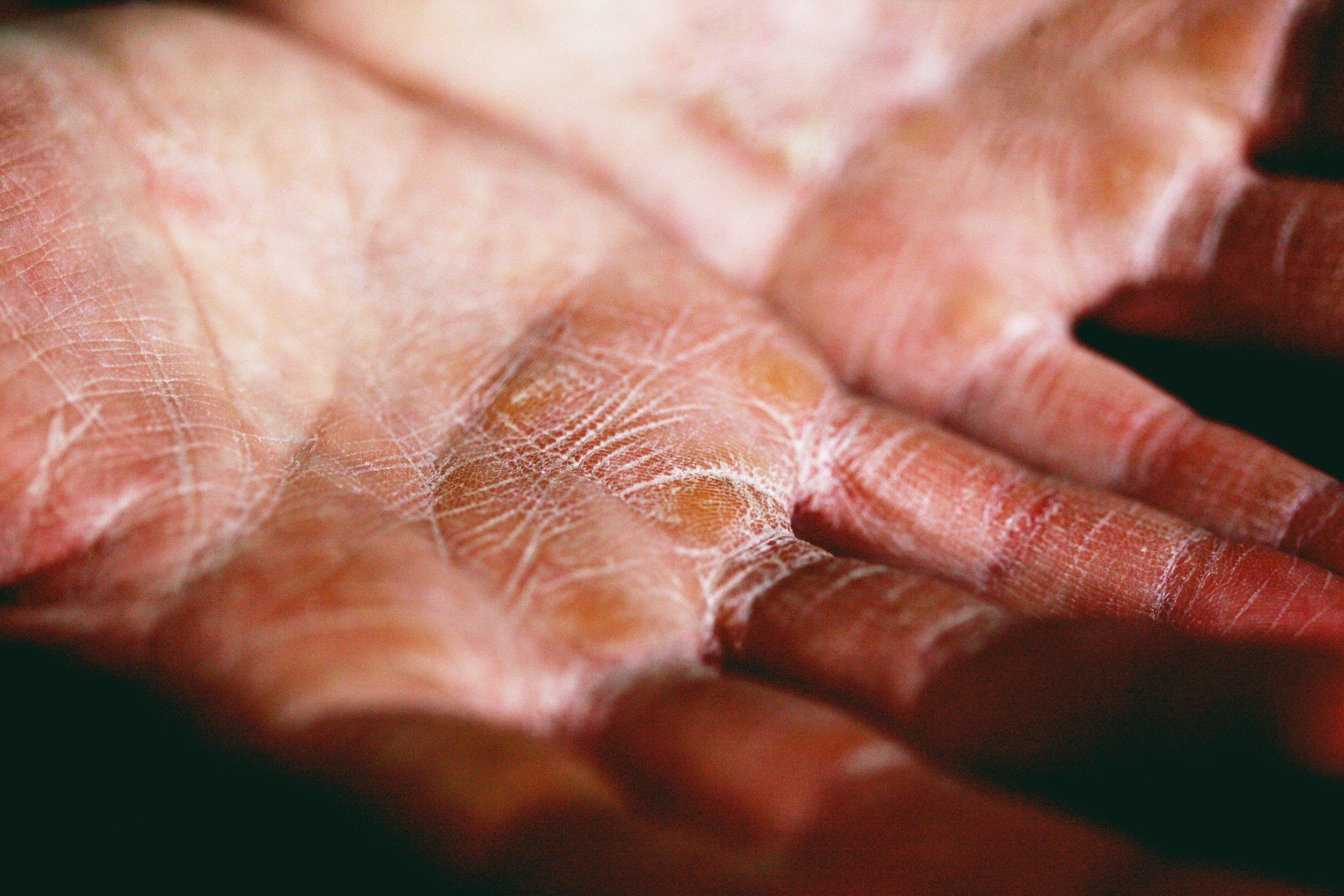Dry skin: How to avoid the itch.
Dry skin is incredibly common. How often do you moisturise your skin? Some of you probably do, but I know that life gets in the way and moisturising is often something we forget about or don’t have time for.
Our skin is the largest organ of the body. It has some of the fastest dividing cells. Unfortunately this means it’s likely to be affected by chemotherapy.
The most common side effect for the skin is dryness which can lead to itchy skin and dermatitis (inflamed skin). This can usually be managed relatively easily.
The key here is to moisturise.
Moisturise, moisturise, moisturise! I cannot say it enough.
I would suggest using a moisturiser at least twice a day, up to 4 times a day, or even 20 times a day if needed. Slather it on, bathe in it if you need to, you can’t overdose from too much moisturiser. Interestingly I have been asked if using too many moisturisers can increase your risk of cancer (especially breast), thankfully there has been a study to look at exactly this - and no, there is no increased risk - see study here.
Moisturising regularly and therefore feeling your breasts and body regularly may mean you notice any changes to your body/breasts early. If any of these changes were cancerous, the earlier you notice them and speak to your doctor the better. So moisturising could just save your life! I know, who knew it was so important?!
Prevention is always better than cure, so keeping your skin moisturised before and during chemo is the best form of attack! We should all be moisturising our skin daily, chemo or no chemo. This is because our skin is one of our greatest defences against infections, toxins, radiation (UVA/UVB) and harmful pollutants, it also helps us regulate our temperature, protects against trauma, our skin is amazing! It functions best when it is moisturised and if it becomes dry, this can reduce it’s ability to do the things listed before.
Dry skin can become flakey, itchy and red this is know as dermatitis. If you notice red patches these may need a low dose steroid cream to help settle them. You can use hydrocortisone 1% which you can buy at most pharmacies without the need for a prescription (although as cancer patients we should all be getting free prescriptions so you can ask your GP or cancer team to prescribe this).
Moisturising your skin can also reduce the appearance of scars and reduce the signs of ageing.
What moisturiser you use depends on your skin and your personal preference. Some people don’t like things too greasy, some people prefers gels, and some people prefer oils etc. Find what works for you.
These are my top ones I use;
Sans [ceuticals] activator body + hair + face oil
It’s a little pricey but I love the smell and it’s a multipurpose oil. As the name suggests it’s got no nasty chemicals or fake fragrances. I started using this during chemo and had no reaction to it - maybe patch test before you use anything with a fragrance in, just in case your skin hates it.Aveeno
I use the daily moisturiser (green top) or the skin relief (dark blue top).Weleda skin food
I find the original quite greasy so it was perfect when I had hand and foot syndrome (I will do a post about this in the future) and I used it on my face during chemo, now I’ve finished I use the light skin food one for my face before SPF.E45
A classic for a reason.Dermol
It’s got antimicrobial properties - to try and reduce the risk of infection, so if this is something you’re worried about or regularly get spots on your body, infected hair follicles, abscesses - this could be a good one for you.
Other things I would suggest;
Stay hydrated (common theme throughout chemo advice).
Avoid extremes of temperatures (this includes when washing your hands - try and use warm but not hot water).
Avoid soaps - try and use gentle washes that won’t dry out your skin - you can also wash with moisturisers, either apply them in the shower as you would do with your wash normally, or apply before a shower and then wash off when you’re in there.
Try and moisturise straight after a shower/bath or you wash your hands, this is the best way to lock in moisture.
Avoid anything heavily perfumed (this can increase the risk of skin irritation).
Avoid tight fitting clothing.
Protect your hands when doing household jobs where you might come into contact with soap or chemicals.
ALWAYS wear SPF 30+ (I wear 50) and at least 4* UVA (I use Soltan) avoid chemical SPF (as it can irritate your skin) and use mineral or barrier sun cream - apply these AFTER you’ve moisturised.
Here is a helpful link on how to be sun safe.
Here are some really useful websites…
Webpage about dry skin and what you can do to try and prevent it whilst on chemo.
Info about dry skin, also talks about other skin changes and nail changes.
Article by 2 consultant dermatologists - one who is has a specialist interest in oncodermatology (skin conditions caused by cancer) and the other who is married to an oncologist.
Useful website by the American Academy of Dermatology Association and how to help with dry skin.






